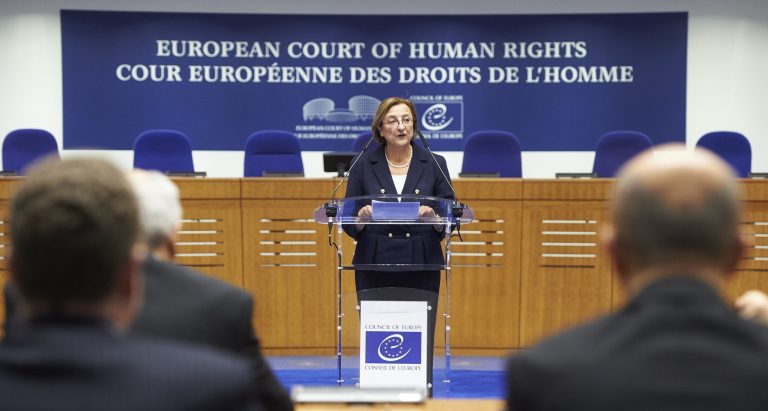Polish court for first time removes judges appointed after previous government’s reforms

A Polish court has for the first time removed from adjudication judges who were appointed through a state body rendered illegitimate by reforms introduced under the former Law and Justice (PiS) government.
The government that succeeded PiS in December has pointed to various Polish and European court rulings finding that such judges hold their positions illegitimately. It is a government appointee who has now removed the judges in question.
However, PiS and the judges appointed under its rule deny such claims and argue that the new authorities are taking unlawful and politically motivated action against the judiciary.
Neo-sędziowie, tacy jak Schab, Radzik czy Lasota, nie będą już wydawać wyroków – orzekł Sąd Apelacyjny w Warszawie. Zyskają na tym obywatele, bo dostaną legalne wyroki, a procesy przyśpiesząhttps://t.co/qpmcqtsQN9
— OKO.press (@oko_press) August 7, 2024
At the heart of the dispute is the National Council of the Judiciary (KRS), the body constitutionally tasked with nominating judges to Poland’s courts. In 2017-18, the KRS was reconstituted by PiS. Its members, previously chosen mainly by judges themselves, were now nominated mostly by politicians.
In 2019, Poland’s Supreme Court ruled that, due to PiS’s reforms, “the KRS is not an impartial and independent body” as it had been rendered “dependent on the executive authorities”. In 2022, the same court found the KRS to no longer be consistent with its role outlined in the constitution.
In 2021, the European Court of Human Rights likewise found the overhauled KRS was no longer independent from legislative or executive powers. The same year, Poland became the first country to ever be expelled from the European Network of Councils for the Judiciary.
The defects in the KRS have had a knock-on effect because they have called into question the legitimacy of the thousands of judges appointed through it after PiS’s reforms – and, by extension, all of the judgements issued by them.
Sorry to interrupt your reading. The article continues below.
Notes from Poland is run by a small editorial team and published by an independent, non-profit foundation that is funded through donations from our readers. We cannot do what we do without your support.
The new government in February proposed legislation to “repair” the KRS. It was approved by the ruling coalition’s majority in parliament in April. However, last week, President Andrzej Duda, a PiS ally, sent the bill for assessment by the constitutional court, a body stacked with PiS-appointed judges.
On Wednesday, OKO.press, a news and analysis website, reported that the president of Warsaw’s court of appeal, Dorota Markiewicz, has in the meantime decided to take action against “neo-judges” – as critics call those appointed by the PiS-reformed KRS – under her authority.
Next week, she will abolish one of her court’s divisions that is filled with ten “neo-judges” and transfer them to a newly created “claims and motions section” where they will no longer hear new appeals cases.
Some of the judges affected were prominent figures under the PiS government, including Piotr Schab and Przemysław Radzik, who were previously president and vice-president respectively of the Warsaw appeals court. Both also served as the main disciplinary official for judges under PiS.
Three Polish judges are seeking criminal charges against the president of their court – a key figure in the government’s overhaul of the judiciary – for refusing to implement a European court order to reinstate them to their previous positions https://t.co/g7BPOYZFDH
— Notes from Poland 🇵🇱 (@notesfrompoland) January 17, 2023
In January, justice minister Adam Bodnar launched proceedings to remove Schab from the presidency of the Warsaw court, saying that his presence “directly threatened the good of the justice system”. In March, Bodnar then appointed Markiewicz as the new president.
Schab, however, claimed at the time that Bodnar’s decision to remove him was “completely unlawful”. Yesterday, he condemned the latest decision to sideline him and other “neo-judges”, calling Markiewicz “a person usurping the authority of the president of this court”.
He said that her decision was aimed at “reactivating the post-Stalinist system, giving vile people joyful impunity and restoring domination over the helpless citizen, for whom the courts were, are and unfortunately will be an enemy by foreign appointment”.
Markiewicz’s actions were also criticised by the head of the KRS, Dagmara Pawełczyk-Woicka, who was appointed after PiS’s reforms and has sought to defend her institution from the new government.
Z dniem 12 sierpnia 2024 r. powstać ma w II Wydziale Karnym Sądu Apelacyjnego w Warszawie „sekcja zażaleniowo-wnioskowa”. Tak 6 sierpnia b.r. „zarządził” człowiek, uzurpujący sobie – z całą świadomością złamania prawa – władzę Prezesa tego Sądu.
Otóż dla mnie i dla moich…
— Piotr Schab (@PiotrSchab25737) August 7, 2024
Main image credit: Slawomir Kaminski / Agencja Wyborcza.pl

Daniel Tilles is editor-in-chief of Notes from Poland. He has written on Polish affairs for a wide range of publications, including Foreign Policy, POLITICO Europe, EUobserver and Dziennik Gazeta Prawna.






